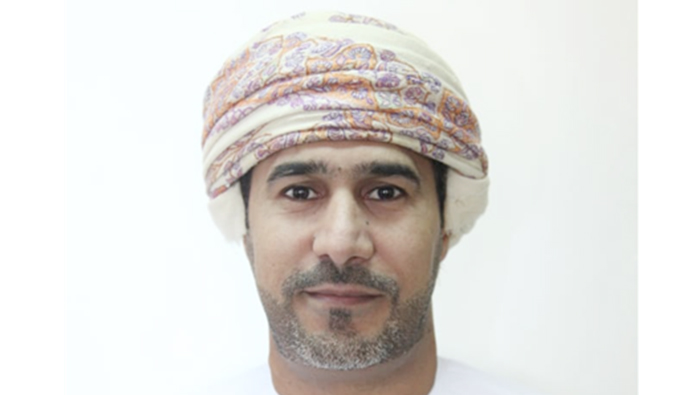
Muscat: The Ministry of Commerce, Industry, and Investment Promotion (MoCIIP) said that the exhibition sector in Oman contributes to enhancing economic, investment, and tourism diversification, as well as marketing local products and fostering partnerships and attracting investors.
The government aims in the coming period to attract international and regional exhibitions and to attract local and foreign investors to engage in organising and managing exhibitions in line with Oman’s regional and international commitments and in line with the economic and commercial changes witnessed by the Sultanate of Oman.
The MoCIIP, represented by the Licencing Department, affirmed that the exhibition sector, in all its forms, is among the best methods for meeting clients, showcasing goods and services, closing deals, and obtaining commercial agencies. It also plays a fundamental role in transferring and localising information and technology, disseminating knowledge and professional practices, and fostering understanding and relationships between countries, cultures, and civilizations. One of its key objectives is to promote national industries and crafts. The MoCIIP prioritises and supports the exhibition sector as it constitutes a vital element in the future growth of the local economy.
Statistics released by the Licencing Department at the MoCIIP indicate that the number of exhibitions held during the year 2023 in all governorates of the Sultanate of Oman reached 241, marking a 141 percent increase compared to the exhibitions held in 2022, which amounted to 178. These exhibitions include specialised exhibitions, exhibitions accompanying festivals and conferences, single-country exhibitions, cultural exhibitions, national product and industry exhibitions, as well as exhibitions showcasing Gulf products and industries, charity exhibitions, innovative exhibitions, exhibitions organised by commercial centres and complexes, and exhibitions organised by the Oman Convention & Exhibition Centre (OCEC).
Ali Al Maamari, the Director of the Licencing Department at the MoCIIP, explained that the exhibitions held during the past year included 67 specialised exhibitions, 8 exhibitions accompanying festivals and conferences, two single-country exhibitions, one cultural exhibition, 54 exhibitions for national products and industries, 21 exhibitions for Gulf products and industries, nine charity exhibitions, six innovative exhibitions, seven exhibitions for commercial centres and complexes, and eight exhibitions organised by the OCEC. Additionally, 58 exhibitions were organised to coincide with conferences, seminars, and workshops.
Al Maamari said, “The regulations for organising and managing exhibitions have been formulated to keep pace with the current situation and requirements in the Sultanate of Oman, and to provide further facilitation for exhibition and conference organising companies. This aims to encourage them to expand and diversify their exhibitions and conferences in the Sultanate of Oman, as well as attract regional and international exhibitions and conferences to Oman.”
The regulations contribute to enhancing partnership between the public and private sectors with the aim of promoting investment attraction in line with the goals of MoCIIP, to stimulate the local economy, encourage domestic capital, and attract foreign investments to contribute to achieving the objectives of Oman Vision 2040, he added.
Al Maamari clarified that obtaining a licence requires that the number of employees in the licenced establishment not be less than two, with one of them being an Omani administrative manager if the owner or one of the partners is not available to manage it, and signing on their behalf. If the owner or one of the partners is available, their dedication must be proven with an authenticated letter from the relevant authorities. All Omani employees working in the commercial establishment must be registered with the Public Authority for Social Insurance. The applicant for the licence must have a fixed location for conducting the activity, maintain a bank account in one of the banks in the Sultanate of Oman, and pay the prescribed fee.
The licence application must be submitted by the owner of the commercial establishment or their authorised representative to the competent authority using the designated form for this purpose at least fifteen days before the exhibition’s scheduled date.
Al Maamari stated, “The license application is submitted to the Ministry of Commerce, Industry, and Investment Promotion using the designated form for this purpose. The licence is valid for a period not exceeding three years and may be renewed for a similar period. The licencee must submit a request for licence renewal at least 30 days before the expiration of the license period, adhering to the same conditions and requirements necessary for obtaining the license.”
He emphasised that the license expires if the licencee fails to meet any of the conditions required for obtaining it, if the licence period lapses without renewal within the specified term, or if the ministry declines to renew it. This decision must be justified, with a final judgement issued declaring the licensee bankrupt, dissolved, or liquidated, or the termination of its legal entity for any reason. Moreover, the license may be revoked if it’s proven that the licensee obtained it through fraud, deception, forgery, or by providing false information. Additionally, requesting the cancellation of the license by the licensee will lead to its termination.
Al Maamari affirmed that no exhibition can be held, promoted, or advertised through various media outlets or social media platforms except by the duly licensed entity and after obtaining permission from the relevant authority. A request for permission must be submitted to the competent authority using the designated form, which includes the required data and documents, including the preparation of a profile file for the exhibition. The competent authority reserves the right to revoke the permission at any time, with its decision being justified.
He also clarified that the organisation of exhibitions is based on social, economic, or historical considerations as determined by the MoCIIP. The nature of the exhibits and products featured in these exhibitions should meet the intended purpose of their establishment.